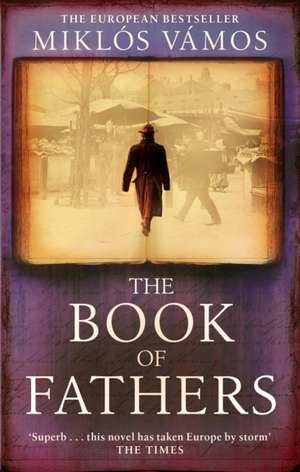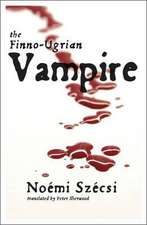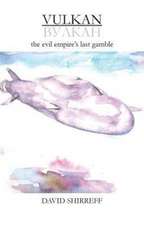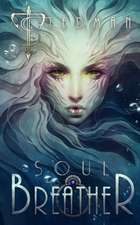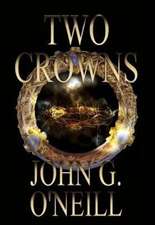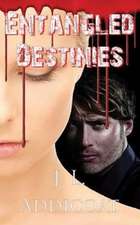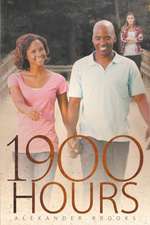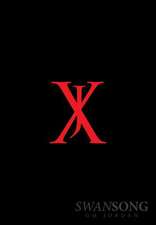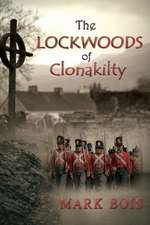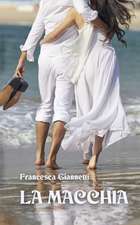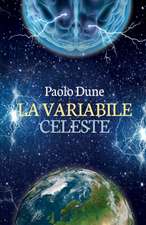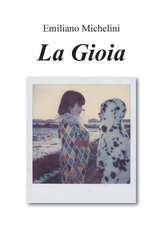The Book Of Fathers
Autor Miklos Vamosen Limba Engleză Paperback – 17 ian 2007
| Toate formatele și edițiile | Preț | Express |
|---|---|---|
| Paperback (2) | 68.22 lei 43-57 zile | |
| Other Press (NY) – 30 sep 2009 | 160.50 lei 22-36 zile | |
| Little Brown Book Group – 17 ian 2007 | 68.22 lei 43-57 zile |
Preț: 68.22 lei
Preț vechi: 108.95 lei
-37% Nou
Puncte Express: 102
Preț estimativ în valută:
13.06€ • 13.58$ • 10.78£
13.06€ • 13.58$ • 10.78£
Carte tipărită la comandă
Livrare economică 14-28 aprilie
Preluare comenzi: 021 569.72.76
Specificații
ISBN-13: 9780349119311
ISBN-10: 0349119317
Pagini: 480
Dimensiuni: 132 x 198 x 31 mm
Greutate: 0.33 kg
Ediția:New
Editura: Little Brown Book Group
Locul publicării:United Kingdom
ISBN-10: 0349119317
Pagini: 480
Dimensiuni: 132 x 198 x 31 mm
Greutate: 0.33 kg
Ediția:New
Editura: Little Brown Book Group
Locul publicării:United Kingdom
Notă biografică
Miklós Vámos
Miklós Vámos is one of the most respected and widely read writers in his native Hungary. He is the author of twenty-eight books, eleven of them novels. He has taught at Yale University on a Fulbright fellowship, served as The Nation’s Eastern Europe correspondent, and was the host of a popular cultural TV talk show in Hungary. Today he is a correspondent for the Washington Post online. He is the father of three children, including a daughter who lives in London and five-year-old twin boys in Budapest.
Miklós Vámos is one of the most respected and widely read writers in his native Hungary. He is the author of twenty-eight books, eleven of them novels. He has taught at Yale University on a Fulbright fellowship, served as The Nation’s Eastern Europe correspondent, and was the host of a popular cultural TV talk show in Hungary. Today he is a correspondent for the Washington Post online. He is the father of three children, including a daughter who lives in London and five-year-old twin boys in Budapest.
Extras
Farther up, where the stream curled away to the right, ancient willows swept the water, the branches lightly slapping its surface again and again. The boys had tired themselves out and lay down in the shade to eat the luncheon in their saddlebags. The monotonous little noises soon made them nod off.
Bálint stirred and turned to suddenly see beauty that made his eyes ache. A girl was bathing on the far bank, almost stark naked. Her faultless skin was as white as swansdown. Her luxuriant hair, wound around her head, was the color of blackest coal. She was splashing in the water with the abandon of a puppy. At first he thought he must be dreaming and that the slightest movement on his part would make the image dissolve.
In the evening he found out that he had seen Kata, the only daughter of the new glassmaster, Imre Farkas II. His excitement knew no bounds. He could not sleep a wink all night: he kept seeing the girl again and again, her slightest movement came to life, every curve and crevice of her body was deeply etched in his brain. The following day he spent in a moonstruck daze: he would neither eat nor drink; in his usual summer pastimes, whether hunting or ninepins, he took no pleasure at all. He was pining, pining for the bank of the stream where he might again glimpse the figure of Kata.
Bálint stirred and turned to suddenly see beauty that made his eyes ache. A girl was bathing on the far bank, almost stark naked. Her faultless skin was as white as swansdown. Her luxuriant hair, wound around her head, was the color of blackest coal. She was splashing in the water with the abandon of a puppy. At first he thought he must be dreaming and that the slightest movement on his part would make the image dissolve.
In the evening he found out that he had seen Kata, the only daughter of the new glassmaster, Imre Farkas II. His excitement knew no bounds. He could not sleep a wink all night: he kept seeing the girl again and again, her slightest movement came to life, every curve and crevice of her body was deeply etched in his brain. The following day he spent in a moonstruck daze: he would neither eat nor drink; in his usual summer pastimes, whether hunting or ninepins, he took no pleasure at all. He was pining, pining for the bank of the stream where he might again glimpse the figure of Kata.
Recenzii
“Graceful and alluring, a leisurely introduction to the last 300 years of Hungarian history and an often affecting depiction of the way individuals must appear and disappear, alive for a few years and then lost entirely, even to their own descendents…The Book of Fathers is a serious novel that, while sometimes agonizing or even shocking, is never somber. Inevitably, its theme is that life goes on, and that every son is no less interesting than every father, that each generation’s search for wisdom is different, but no less important or dramatic than the previous generation’s. Miklos Vamos’s literary skills are such that he can sustain the reader’s interest in each doomed generation (doomed by nature, if nothing else). His virtuoso portraits of his idiosyncratic characters are fully backed by his evocative portrayal of the world they live in and the history they live through. Note to Vamos’s publisher: More, please!”—Jane Smiley, The New York Times Book Review
“Vámos’s novel chronicles a Hungarian family from 1705 until the present, as its members pass down their recollections of joy and hardship in the carefully preserved manuscript of the title. The novel proceeds via discrete episodes, each focusing on the life and death of a male progenitor with the ability to see into the past and, often, into the future. Steadily, a portrait emerges of an artistic, emotional group of men with a tendency toward violent death...Vámos’s fatalistic narrative follows in the tradition of One Hundred Years of Solitude, but it stands as a unique and affecting illustration of the vicissitudes of Hungarian history.”—The New Yorker
“[The Book of Fathers] is a book worth spending time with.”—The Huffington Post
"In this sprawling chronicle of the Csillag family, celebrated Hungarian author Vámos depicts the lives of 12 generations of men, each a first-born son, and in the process offers a whimsical 400-year history of his native country… the book has many sublime moments, from meditations on the nature of time to a sly investigation of how words accumulate to form books."—Publishers Weekly
"A bestseller in Hungary, this family chronicle focuses on firstborn sons across 12 generations…Widely read in his homeland but rarely translated into English, Vámos should win a new American audience with his beautifully crafted novel of connection and continuity."—Kirkus Reviews
"A superb family saga that draws the reader effortlessly through nearly three centuries of turbulent history . . .it records the political upheavals of an entire nation. The characters are fascinating and Vámos's writing is a magnificent, seamless blend of the general and the personal."—The Times (UK)
"Vámos is capable of producing incredibly acute and economical observations of the most extreme human conditions."—The National
“Vámos’s novel chronicles a Hungarian family from 1705 until the present, as its members pass down their recollections of joy and hardship in the carefully preserved manuscript of the title. The novel proceeds via discrete episodes, each focusing on the life and death of a male progenitor with the ability to see into the past and, often, into the future. Steadily, a portrait emerges of an artistic, emotional group of men with a tendency toward violent death...Vámos’s fatalistic narrative follows in the tradition of One Hundred Years of Solitude, but it stands as a unique and affecting illustration of the vicissitudes of Hungarian history.”—The New Yorker
“[The Book of Fathers] is a book worth spending time with.”—The Huffington Post
"In this sprawling chronicle of the Csillag family, celebrated Hungarian author Vámos depicts the lives of 12 generations of men, each a first-born son, and in the process offers a whimsical 400-year history of his native country… the book has many sublime moments, from meditations on the nature of time to a sly investigation of how words accumulate to form books."—Publishers Weekly
"A bestseller in Hungary, this family chronicle focuses on firstborn sons across 12 generations…Widely read in his homeland but rarely translated into English, Vámos should win a new American audience with his beautifully crafted novel of connection and continuity."—Kirkus Reviews
"A superb family saga that draws the reader effortlessly through nearly three centuries of turbulent history . . .it records the political upheavals of an entire nation. The characters are fascinating and Vámos's writing is a magnificent, seamless blend of the general and the personal."—The Times (UK)
"Vámos is capable of producing incredibly acute and economical observations of the most extreme human conditions."—The National
